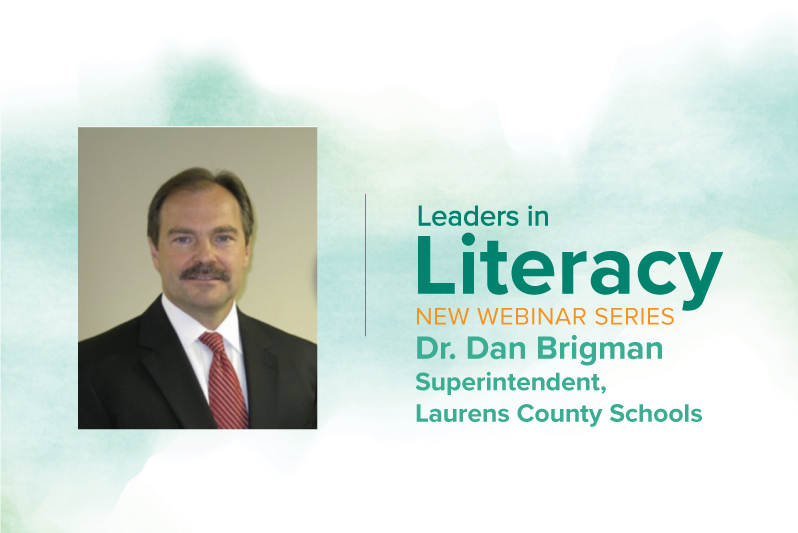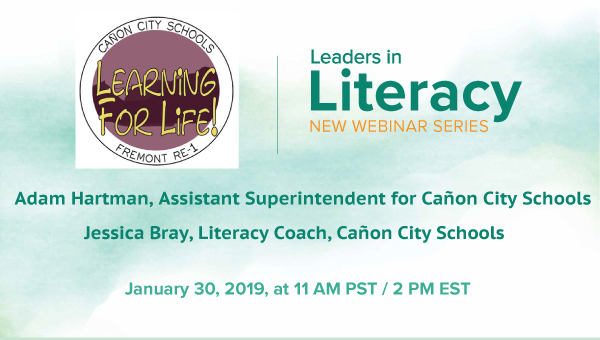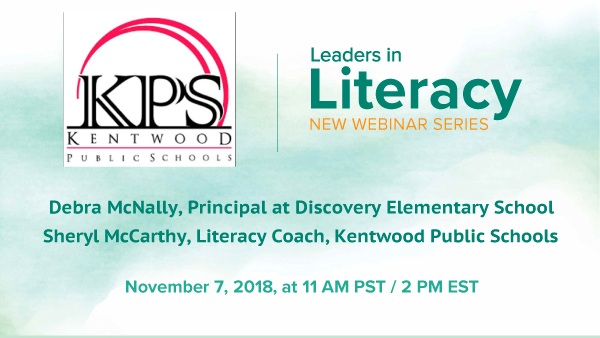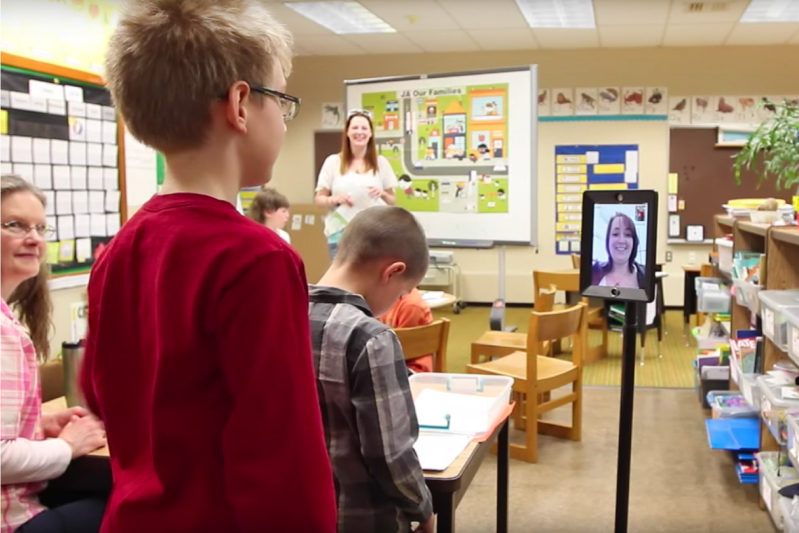Leaders in Literacy
In this webinar titled Literacy in Laurens County: Managing Resources in a Comprehensive Literacy Initiative, Dr. Dan Brigman, Superintendent for Laurens County Schools in Georgia, will discuss how Laurens County School District in Dublin, GA manages human resources to foster a sustainable and comprehensive literacy initiative.
Leaders in Literacy
In this webinar titled Developing Instructional Leaders to Sustain Quality and Fidelity, Adam Hartman, Assistant Superintendent for Cañon City Schools, and Jessica Bray, Literacy Coach, Cañon City Schools will discuss how Cañon City Schools in Cañon City, CO identify and develop instructional leaders for a sustainable and effective professional development model. They will discuss…
Leaders in Literacy
In this webinar titled Real-Life RtI, Debra McNally, Principal at Discovery Elementary School, Kentwood Public Schools and Sheryl McCarthy, Literacy Coach, Kentwood Public Schools, will discuss how Discovery Elementary School in Kentwood, Michigan has implemented a Response to Intervention framework that addresses the diverse learning needs of their students. They will share how they have managed…
Lucky the Robot helps teachers and students learn!
The Lindamood-Bell Instruction Robot, Lucky, brings on-site support to the classroom in a unique and cost-effective way. After teachers attend a professional development workshop, Lucky provides live coaching, step demonstration, and help with lesson planning. Engaging and fun, Lucky helps capture the attention of students, too. One district using Lucky is Spartanburg County School…
Solutions for Dyslexia | Spotlight on Fort Smith Public Schools
Background Fort Smith Public School District in Arkansas is one of the many communities around the country trying to make the new state dyslexia laws work for students and teachers. In Arkansas, the law requires schools across the state to screen all students in kindergarten through second grade for signs of dyslexia. In 2017,…
Sustaining Investments in Professional Development
Districts and schools spend extensive resources on professional development designed to improve student outcomes, but sustaining implementation is challenging. Lindamood-Bell has structured a professional development model to provide initial program knowledge, increase fidelity, and sustain implementation by utilizing job-embedded professional development. Join us for a webinar—Sustaining Investments in Professional Development where we walk…
Imagine Better Comprehension: Change Learning for Your Students
Most reading experts agree on one thing: To comprehend what they read, students must have strong decoding skills and adequate oral vocabulary. A child must be able to accurately decode every word on the page, and know what each of the words mean. Unfortunately, many students who can decode well and understand words still…
Online PD for Teachers | Introductory Workshops – eLearning – Coaching
Lindamood-Bell for Schools now features online professional development for educators that is innovative, interactive and relevant for today’s classroom. Whether you’re a teacher learning our research-validated programs for the first time, or an administrator who needs to bring scalable professional development to your district, you are going to love Lindamood-Bell for Schools online. …
Teacher PD that makes a difference | Spotlight on Cañon City School District
Cañon City School District is continuing into its second year of a three-year Colorado Department of Education literacy grant initiative. With the goal of changing outcomes for struggling readers, Cañon City partnered with Lindamood-Bell to provide teachers with workshops and ongoing coaching to develop their skills. Participating teachers start out by learning the steps…
Teaching Math to Students Who Just “Don’t Get It”
Many students can grasp addition and subtraction problems using math manipulatives. But take away the concrete objects and their understanding seems to disappear. Manipulatives are a very helpful visual representation, but math students of all ages need to learn to visualize what numbers mean as well. Mathematics is cognitive processing, or thinking, that requires…











